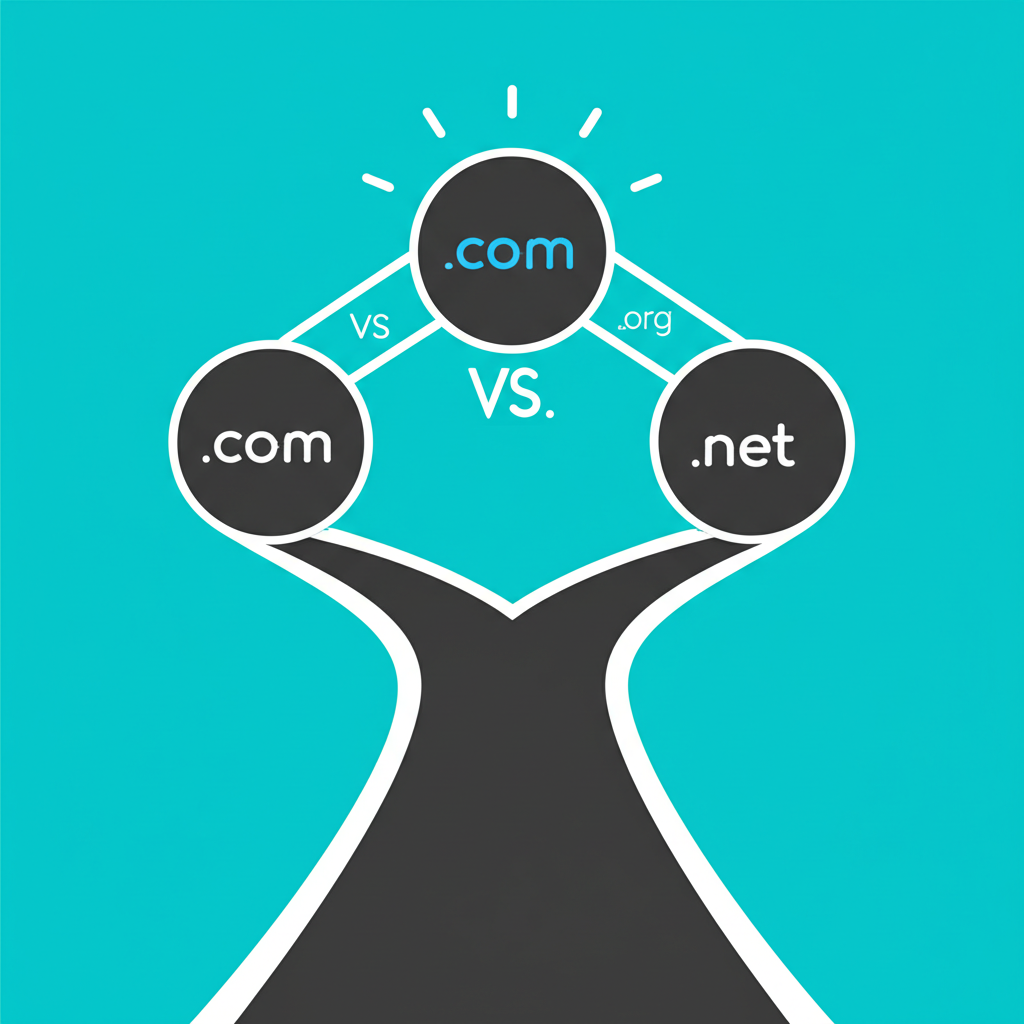- Understanding .com, .net, and .org Domains
- .com: The Commercial King
- .net: The Network Hub
- .org: The Organization's Choice
- Choosing the Right Domain Extension: A Practical Guide
- .com vs .net vs .org: Key Considerations
- Beyond the Big Three: Exploring Other Options
.com vs .net vs .org: Choosing the Best Domain
Choosing the right domain extension is a crucial step when building your online presence. While countless new top-level domains (TLDs) have emerged in recent years, .com, .net, and .org remain the most popular and recognizable choices. Understanding the historical significance and intended purpose of each can help you select the best fit for your website and target audience.
Understanding .com, .net, and .org Domains

These three domain extensions are among the original TLDs, each carrying its own connotations and implied purpose. While technically anyone can register any of these, choosing wisely can enhance your brand’s credibility and improve user recognition.
.com: The Commercial King
.com stands for “commercial” and is by far the most popular TLD globally. From multinational corporations to small businesses, .com is often the default choice. Its widespread recognition makes it easily remembered and contributes to a sense of trustworthiness for users.
Advantages of .com:
Credibility and Trust: Users instinctively associate .com with established and reputable businesses.
Memorability: Its ubiquity makes it easy to recall and type.
SEO Benefits: While not a direct ranking factor anymore, the prevalence of .com can positively influence user behavior, which can indirectly impact SEO.
Disadvantages of .com:
Availability: Due to its popularity, finding a short, memorable .com domain name can be challenging and expensive.
Competition: You might face competition from websites with similar names using other TLDs.
.net: The Network Hub
Initially intended for network providers, .net has evolved to encompass a broader range of websites. While often a second choice to .com, it retains a sense of technological expertise and connectivity.
Advantages of .net:
Suitable for Tech-Related Businesses: The historical connection to networks makes .net a relevant choice for tech companies, web developers, and online service providers.
Greater Availability: Compared to .com, finding a suitable .net domain name is often easier and more affordable.
Disadvantages of .net:
Less Recognition: While widely understood, it lacks the immediate recognition of .com.
Potential Confusion: Users might mistakenly type .com instead of .net, potentially leading to lost traffic.
.org: The Organization’s Choice
.org signifies “organization” and is traditionally associated with non-profits, charities, and foundations. It conveys a sense of community, purpose, and public service.
Advantages of .org:
Clear Identity: Instantly communicates a non-profit or community-focused mission.
Trust and Transparency: Users often associate .org with organizations working for the greater good.
Disadvantages of .org:
Less Suitable for Commercial Ventures: Using .org for a for-profit business can create confusion and erode trust.
Fundraising Implications: Some payment processors and platforms may have specific requirements for .org domains related to fundraising and donation processing.
Choosing the Right Domain Extension: A Practical Guide
Deciding between .com, .net, and .org requires careful consideration of your website’s purpose, target audience, and long-term goals.
.com vs .net vs .org: Key Considerations
Here’s a quick breakdown to help you choose:
For-profit businesses: Prioritize .com. If unavailable, consider .net, but be prepared to invest in branding to solidify your online presence.
Non-profits, charities, and foundations: .org is the ideal choice.
Tech companies: .net can be a fitting option if .com is unavailable, especially if your services relate to networking or online infrastructure.
* Personal websites or portfolios: While any of the three can work, .com offers the broadest appeal and potential for future expansion.
Beyond the Big Three: Exploring Other Options
While .com, .net, and .org dominate the landscape, remember there are other TLDs available. Newer options like .tech, .io, and .co offer more niche appeal and might be a perfect fit depending on your industry or target market.
Ultimately, the best domain extension is one that aligns with your brand, resonates with your target audience, and supports your overall online strategy. Carefully evaluate your options and choose the one that sets you up for long-term success in the digital world.















Leave a Reply